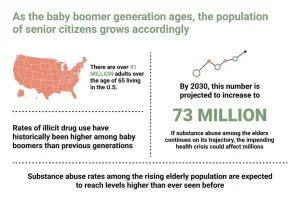
An individual with FAS may have noticeable changes to their face and limbs, as well as delays in the way their body develops over time. There can also be mental and emotional challenges throughout the person’s life that can impact their social life, education and work. Don’t wait for your child to have issues before seeking help. Other fetal alcohol spectrum disorders share some symptoms with fetal alcohol syndrome. All FASD diagnoses require evidence of fetal alcohol exposure in the womb.
Is there a cure for fetal alcohol syndrome (FAS)?
Children born with fetal alcohol syndrome are automatically eligible for early intervention services in most states. Children can also qualify for services without a diagnosis if they have signs of a developmental disability. If a caretaker or healthcare provider believes a child has fetal alcohol syndrome, they are typically referred to an FASD specialist. Such programs may focus on improving a child’s behavior with early education and tutoring.

Whole-Body Effects of Fetal Alcohol Syndrome
The U.S. Food and Drug Administration (FDA) designated specific drugs for treating the symptoms of withdrawal from alcohol in babies. However, it’s important to note that there is no treatment for life-long birth defects and retardation. Babies and children with alcohol-related damage often need developmental follow-up and, possibly, long-term treatment and care.
Fetal Alcohol Syndrome: Signs and Symptoms
Alcohol was not viewed as dangerous for pregnant people until 1973 when the diagnosis of FAS was first implemented. However, the Food and Drug Administration (FDA) did not make a public awareness announcement about the side effects of alcohol use during pregnancy until 1977. Because many people do not know they are pregnant during those first few weeks, the risk of FAS increases if you drink alcohol and have unprotected sex. It is a lifelong condition affecting people through adulthood. However, most studies have not researched FAS symptoms in people over the age of 30.
- As such, there is no known safe amount of alcohol people can drink during pregnancy or while trying to get pregnant.
- This can cause the alcohol levels to remain high and stay in the baby’s body longer.
- Receiving treatment as soon as possible in childhood can help decrease the likelihood of developing these secondary effects in life.
- Parental training teaches you how to best interact with and care for your child.
- The symptoms of fetal alcohol syndrome vary from child to child but are lifelong.
If you’ve already consumed alcohol during pregnancy, it’s never too late to stop. Brain growth in the fetus takes place throughout pregnancy, so stopping alcohol consumption as soon as possible is always best. There isn’t a direct test for celebrities with fetal alcohol syndrome FAS and pregnant people may not give a complete history of all alcohol intake during pregnancy. The challenges that occur along with fetal alcohol syndrome can be difficult to manage for the person with the condition and for the family.

In comparison, liver damage caused by hepatitis or other chronic conditions may not present any signs for years. As liver disease progresses, the symptoms become more severe, especially with cirrhosis or liver failure. Fetal alcohol syndrome (FAS) is a form of fetal alcohol spectrum disorder (FASD). The full picture of FAS usually occurs in babies born to alcoholic mothers, or those who drink more than four to five drinks each day.
Liver Damage vs. Failure: Technicalities to Understand
- It’s impossible to exactly pinpoint all of the development during pregnancy, making it risky to drink alcohol at any time prior to birth.
- If you’ve consumed alcohol during pregnancy, talk to your healthcare provider.
- Alcohol use during this time could negatively impact the baby.
Diagnosis and support at any age can be beneficial, but early intervention is especially helpful. There’s no cure for FASDs, but early treatment can help your child thrive. This involves understanding the unique challenges of parenting a child with an FASD and adjusting as necessary. Parents may also benefit from joining local support groups or finding a family counselor. The Centers for Disease Control and Prevention (CDC) explain that roughly half of all pregnancies in the United States are unplanned.


